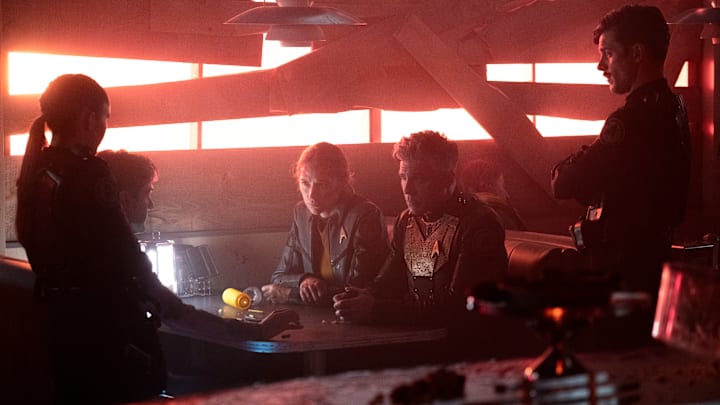Star Trek: Strange New Worlds ended its second season, well over a year ago, by leaving the fate of the Enterprise, its crew, and numerous others in danger thanks to the Gorn. With war possible, if the Enterprise interferes with the Gorn's attempt to claim innocent lives as their own, the episode comes to an end. Driving fans wild knowing they'd have to wait at least a year to find out what happens next.
The old "to be continued". A timeless trope done to spice things up and guarantee fans come back for the next episode. It does work, famously, but it can also backfire, spectacularly. Look at The Walking Dead, they shot themselves in the foot because of such a concept. Yet, they're the outlier. There were issues with the show's pacing for seasons prior to their debacle of a cliffhanger.
Strange New Worlds isn't likely to fall into that pit. After all, the two-part episode is a pretty common occurrence in the Trek fandom. Yet, while it's a common occurrence, it's not fair to say that Star Trek: The Next Generation "popularized" the concept as ScreenRant claims.
One can go all the way back to 1954's Dragnet to see one of the earliest examples of this long-time television staple. On Oct. 29, 1954, and Nov. 5, 1954, the series premiered a two-parter that would continue across two weeks. In the 1960s, Batman would make this a regular habit to end a show on a cliffhanger.
The early Doctor Show episodes would also have a continuation from week to week over several select storylines. Even comedies like Red Dwarf and Punky Brewster were doing the double-shot across multiple weeks, all long before The Next Generation, allegedly, popuralized the concept for Star Trek.
If other shows were doing it before Star Trek, you can't claim that a specific show "popularized" a trend that they took part in. The classic "two-parter" event predates Star Trek, and therefore it predates The Next Generation.
It's fine to give The Next Generation its deserved respect, but we don't need to start making up things just to put the show over. The Next Generation followed the same trends as other shows of its era, so it's not surprising that future Star Trek shows would do the same.
